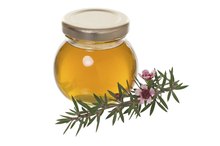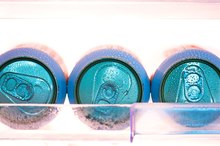Allergy to Cane Sugar, Not Refined Sugar
Cane sugar is not one of the more common food allergens, but it may cause problems for some, even if you're not allergic to refined sugar. Consult your doctor if you suspect an allergy.
Cane Sugar vs. Refined Sugar
The difference between cane sugar and refined sugar is in the processing, with refined sugar being more processed than cane. According to a 2014 article published in Mother Jones, refined sugar is boiled several times to remove all the molasses, while cane sugar is boiled only once. The remaining molasses in the cane sugar adds color, flavor and a trace amount of nutrients.
Allergy to Cane Sugar
An Allergy to Stevia
Learn More
A food allergy is a condition in which your immune system overreacts to a food or a substance in a food it considers a danger to your health. Food allergies aren't that common, affecting about 4 percent of adults, according to the American College of Allergy, Asthma and Immunology, but you can have a reaction to any food at any time. Your allergy to cane sugar and not refined sugar may be due to a substance that's not processed out.
Allergy Symptoms
The symptoms you experience from a cane sugar allergy may vary from mild to extreme. Even if your initial reaction is mild, these symptoms can worsen over time, according to ACAAI, and you should always avoid cane sugar to prevent serious harm. Allergy symptoms include wheezing, shortness of breath, hives, constant coughing, swelling of the tongue, dizziness, abdominal pain or vomiting. In extreme cases, you may also experience anaphylaxis, a life-threatening condition that causes difficulty breathing and low blood pressure.
- The symptoms you experience from a cane sugar allergy may vary from mild to extreme.
- In extreme cases, you may also experience anaphylaxis, a life-threatening condition that causes difficulty breathing and low blood pressure.
Avoiding Sugar Cane
Side Effects of Truvia and Stevia Plant
Learn More
To reduce allergic reactions, you need to omit cane sugar from your diet. You can start by using a different added sweetener, or better yet, skip the sweetener altogether. Additionally, because cane sugar is not a common food allergen, you need to carefully read the ingredient list of packaged goods to identify foods that may contain it. Avoid foods that list cane sugar, raw sugar, turbinado, cane juice, organic cane sugar or Demerara sugar. If you're not certain about an ingredient, contact the manufacturer to get more information.
- To reduce allergic reactions, you need to omit cane sugar from your diet.
- Additionally, because cane sugar is not a common food allergen, you need to carefully read the ingredient list of packaged goods to identify foods that may contain it.
Related Articles
References
- Mother Jones: Sorry, Raw Sugar Is No Better for You Than Refined
- QuickandDirtyTips.com: Is Natural Sugar Better for You?
- American College of Allergy, Asthma and Immunology: Food Allergy
- Sozzi S, Crisafulli O, Schieppati M. Haptic cues for balance: Use of a cane provides immediate body stabilization. Front Neurosci. 2017;11:705. doi:10.3389/fnins.2017.00705
- Luz C, Bush T, Shen X. Do canes or walkers make any difference? Non-use and fall injuries. Gerontologist. 2017;57(2):211-218. doi:10.1093/geront/gnv096
Writer Bio
Jill Corleone is a registered dietitian and health coach who has been writing and lecturing on diet and health for more than 15 years. Her work has been featured on the Huffington Post, Diabetes Self-Management and in the book "Noninvasive Mechanical Ventilation," edited by John R. Bach, M.D. Corleone holds a Bachelor of Science in nutrition.









